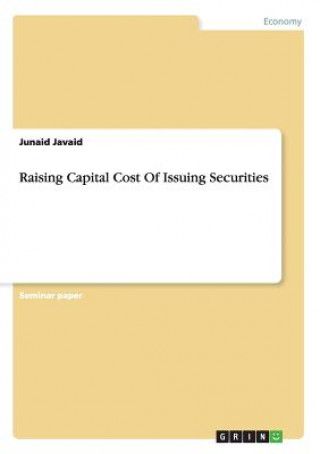
Code: 08018597
Raising Capital Cost Of Issuing Securities
by Junaid Javaid
Seminar paper from the year 2013 in the subject Business economics - Investment and Finance, grade: B-, University of Bedfordshire, course: MSc FINANCE & BUSINESS MANAGEMENT, language: English, abstract: The central focus of this ... more
- Language:
 English
English - Binding: Paperback
- Number of pages: 44
Publisher: Grin Publishing, 2014
- More about this

44.14 €
RRP: 45.04 €
You save 0.90 €

In stock at our supplier
Shipping in 15 - 20 days
You might also like
-

Out of the Grave
12.22 € -19 % -

Skies of Fury
15.75 € -12 % -

Shrimpton's Popular Handbooks.
21.61 € -19 % -

Economics of Teacher Supply
8.48 € -
![Exploration of Australia. [With a Map.] Exploration of Australia. [With a Map.]](https://media.libris.to/jacket/08058815t.jpg)
Exploration of Australia. [With a Map.]
29.49 € -19 % -

Dalinda
31.51 € -

Compleat System of Astronomy. in Two Volumes. Containing, the Description and Use of the Sector, the Laws of Spheric Geometry; ... Also New Tables of
28.68 €
Give this book as a present today
- Order book and choose Gift Order.
- We will send you book gift voucher at once. You can give it out to anyone.
- Book will be send to donee, nothing more to care about.
More about Raising Capital Cost Of Issuing Securities
You get 111 loyalty points
 Book synopsis
Book synopsis
Seminar paper from the year 2013 in the subject Business economics - Investment and Finance, grade: B-, University of Bedfordshire, course: MSc FINANCE & BUSINESS MANAGEMENT, language: English, abstract: The central focus of this research project is to guide the relatively medium sized car dealership company towards making decision on the appropriate security financing option so that it would permit the given company to expand its operation while minimises its cost and maximises its profitability. In general there are three types of security financing (Equity Securities, Debt Securities and Asset-Backed Securities). Security Financing is also considers being a good financing source which involves the issuance of securities either in the stock market or in the capital market. In general, the companies financial decision subject to the composition of its Capital Structure. The Capital Structure is made up of two factors: debt & equity. The trade-off theory was originated out of debate over the Modigiliani Miller theorem. The term trade-off theories was been used by different authors to state different group or similar related theories. The static trade-off theory confirms that the firm has perfect capital structure which they gain by trading off cost from the benefits of the use of equity and debt. The dynamic trade-off theory relates to the role of profit, role of retained earnings and path dependence. The concept of agency theory is emphasised more on the approach of concentrating on the nature of relationship existing between the company s shareholders (Principal) and their managers (Agents). Pecking order theory stressed that the company should first prefer to use internally generated income for the purpose of raising as it would restrict the company to expose itself towards financial leverage. The marketing timing theory state that firm value their equity in the way that when the stock price is perceived to be overvalued then they issue new stock and gain their share back. After the careful analysis of all possible options, it seemed better for the medium sized Car Dealership Company to go for option of debt security instrument known as Debentures for the purpose of pursuing expansion.
 Book details
Book details
Book category Books in English Economics, finance, business & management Business & management
44.14 €
- Full title: Raising Capital Cost Of Issuing Securities
- Author: Junaid Javaid
- Language:
 English
English - Binding: Paperback
- Number of pages: 44
- EAN: 9783656748090
- ISBN: 3656748098
- ID: 08018597
- Publisher: Grin Publishing
- Weight: 68 g
- Dimensions: 210 × 148 × 3 mm
- Date of publishing: 25. September 2014
Trending among others
-

Personal MBA
14.44 € -9 % -
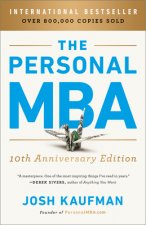
The Personal MBA 10th Anniversary Edition
31.51 € -

Slight Edge
16.66 € -20 % -
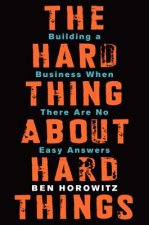
The Hard Thing about Hard Things
23.43 € -18 % -

Venture Deals
36.16 € -31 % -

The Millionaire Real Estate Investor
19.79 € -26 % -
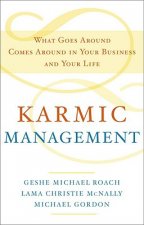
Karmic Management
15.04 € -21 % -
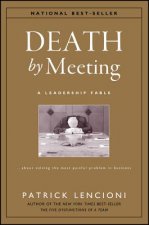
Death by Meeting - A Leadership Fable About Solving the Most Painful Problem in Business
24.95 € -11 % -

Ready, Fire, Aim - Zero to GBP100 Million in No Time Flat
29.90 € -28 % -
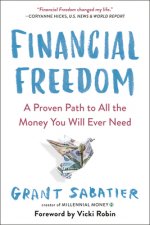
Financial Freedom
17.77 € -16 % -

Cryptoassets: The Innovative Investor's Guide to Bitcoin and Beyond
34.44 € -

Market Leader 3rd Edition Intermediate Coursebook & DVD-Rom Pack
34.14 € -6 % -

Hey Whipple, Squeeze This
25.86 € -16 % -
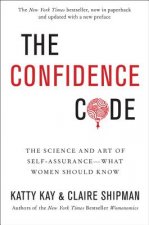
Confidence Code
13.33 € -28 % -

Pearson REVISE Edexcel AS/A level Business Revision Guide & Workbook
16.06 € -

Winning through Intimidation
12.22 € -24 % -
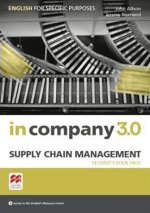
In Company 3.0 ESP Supply Chain Management Student's Pack
27.37 € -

Real Estate Investing For Dummies
19.89 € -31 % -

Loudest Voice in the Room
15.04 € -21 % -
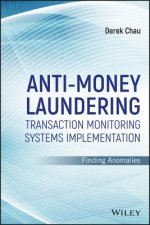
Anti-Money Laundering Transaction Monitoring Systems Implementation
47.07 € -6 % -

Toyota Way, Second Edition: 14 Management Principles from the World's Greatest Manufacturer
28.38 € -22 % -

Transformed: Moving to the Product Operating Model
34.34 € -1 % -

Thinking In Bets
17.77 € -16 % -

Good To Great
22.42 € -23 % -

Eat That Frog!
14.14 € -29 % -
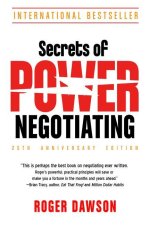
Secrets of Power Negotiating - 25th Anniversary Edition
22.82 € -4 % -

Ultimate Guide to Dropshipping
11.91 € -

YouTube Formula - How Anyone Can Unlock the Algorithm to Drive Views, Build an Audience, and Grow Revenue
20.60 € -26 % -
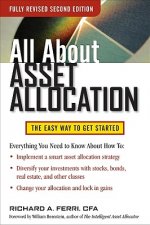
All About Asset Allocation, Second Edition
18.28 € -28 % -

Millionaire Real Estate Agent
19.79 € -28 % -
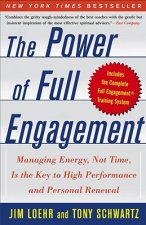
The Power of Full Engagement
19.89 € -

The Fearless Organization
26.36 € -19 % -
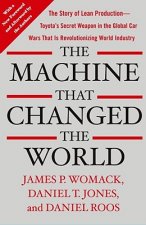
The Machine That Changed the World
16.86 € -20 % -

The Big Book of Dashboards
38.49 € -26 % -

Onward
14.24 € -26 % -

4 Stages of Psychological Safety
18.58 € -19 % -

Machine That Changed the World
13.02 € -24 % -

Growing Pains - Building Sustainably Successful Organizations 5e
63.04 € -
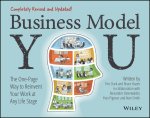
Business Model You - The One-Page Way to Reinvent Your Work at Any Life Stage 2nd Edition
23.63 € -23 % -
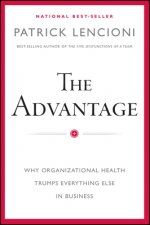
The Advantage
24.44 € -18 % -
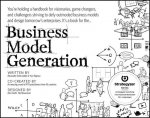
Business Model Generation - A Handbook for Visionaries Game Changers and Challengers
30.20 € -20 % -
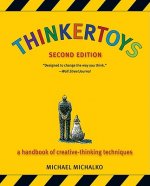
Thinkertoys
19.39 € -16 % -

Business Adventures
13.23 € -23 % -
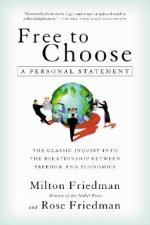
Free to Choose
14.14 € -30 % -

LOVED: How to Rethink Marketing for Tech Products
28.38 € -22 % -

Testing Business Ideas - A Field Guide for Rapid Experimentation
30.10 € -16 % -

Smart Women Finish Rich
17.87 € -11 % -

High-Performance Training for Sports
45.25 € -15 % -
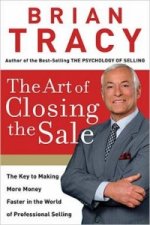
Art of Closing the Sale
16.76 € -17 %
Collection points Bratislava a 2642 dalších
Copyright ©2008-24 najlacnejsie-knihy.sk All rights reservedPrivacyCookies


 15549 collection points
15549 collection points Delivery 2.99 €
Delivery 2.99 € 02/210 210 99 (8-15.30h)
02/210 210 99 (8-15.30h)